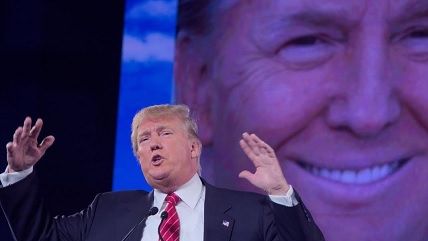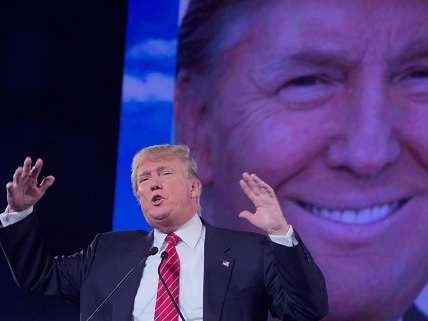Paul Krugman: Donald Trump is Right
On economics.


Nobel prize winning economist Paul Krugman's New York Times op-ed column today is headlined "Donald Trump is Right on Economics." Krugman makes this determination based on Trump's public statements, and namely his "willingness to raise taxes on the rich" and "his positive words about universal health care." Trump has said on the campaign trail he believes rich people could pay more in taxes, and at the first debate defended once supporting universal healthcare, claiming it works in several other countries.
Krugman, naturally, isn't interested in exploring why Trump has staked these positions, why they are attractive to his supporters, or what it means. He's just interested in using Trump's position to attack Jeb Bush and other establishment Republicans' "economic delusions" about taxes and government expansion slowing economic growth.
So even though Donald Trump seems to share a significant portion of Paul Krugman's economic outlook, Krugman still writes him off as "exactly the ignorant blowhard he seems to be." Krugman condemns Trump's anti-immigration stance, but makes no effort to explain why his positions on immigration make him an ignorant blowhard on issues not directly related to immigration. It's almost as if Krugman is calling himself an ignorant blowhard. After all, he agrees with Trump on some pretty core economic stuff.
More importantly, Krugman claims there are "other" candidates who reject the conservative "economic orthodoxy" on taxes but don't share Trump's anti-immigration, anti-free trade positions. Krugman, unsurprisingly, doesn't mention a single one. It's not Bernie Sanders, who has shot into frontrunner status in the Democratic primaries. The man may not be firing up his racist base by promising to round up immigrants or start a trade war with China, but his policy positions on those issues aren't far off from Trump's. Like Trump, he considers open borders, or the right of people to travel freely across political lines on maps, a right-wing (big business) conspiracy meant to suppress wages, the same myth pushed by the anti-immigrant right. Sanders, too, is an economic protectionist, framing the phenomena of China's growing middle class and economic growth as a zero-sum endeavor relative to the American worker; China wins, America loses. Sanders may not be explicitly xenophobic, but explicit xenophobia is not necessary for blowhard positions.
Krugman imagines a Democratic candidate who shares Trump's views on taxing the rich and universal healthcare but not on immigration and trade, but that's not the case. The leading Democratic candidates may not share Trump's anti-immigrant rhetoric, but they share his outlook on the issue, playing to the same fears, if more latent, in their supporters, that foreigners are responsible for America's economic fortunes and not Americans themselves.
h/t commenter Djucational Woodchipper


Show Comments (388)